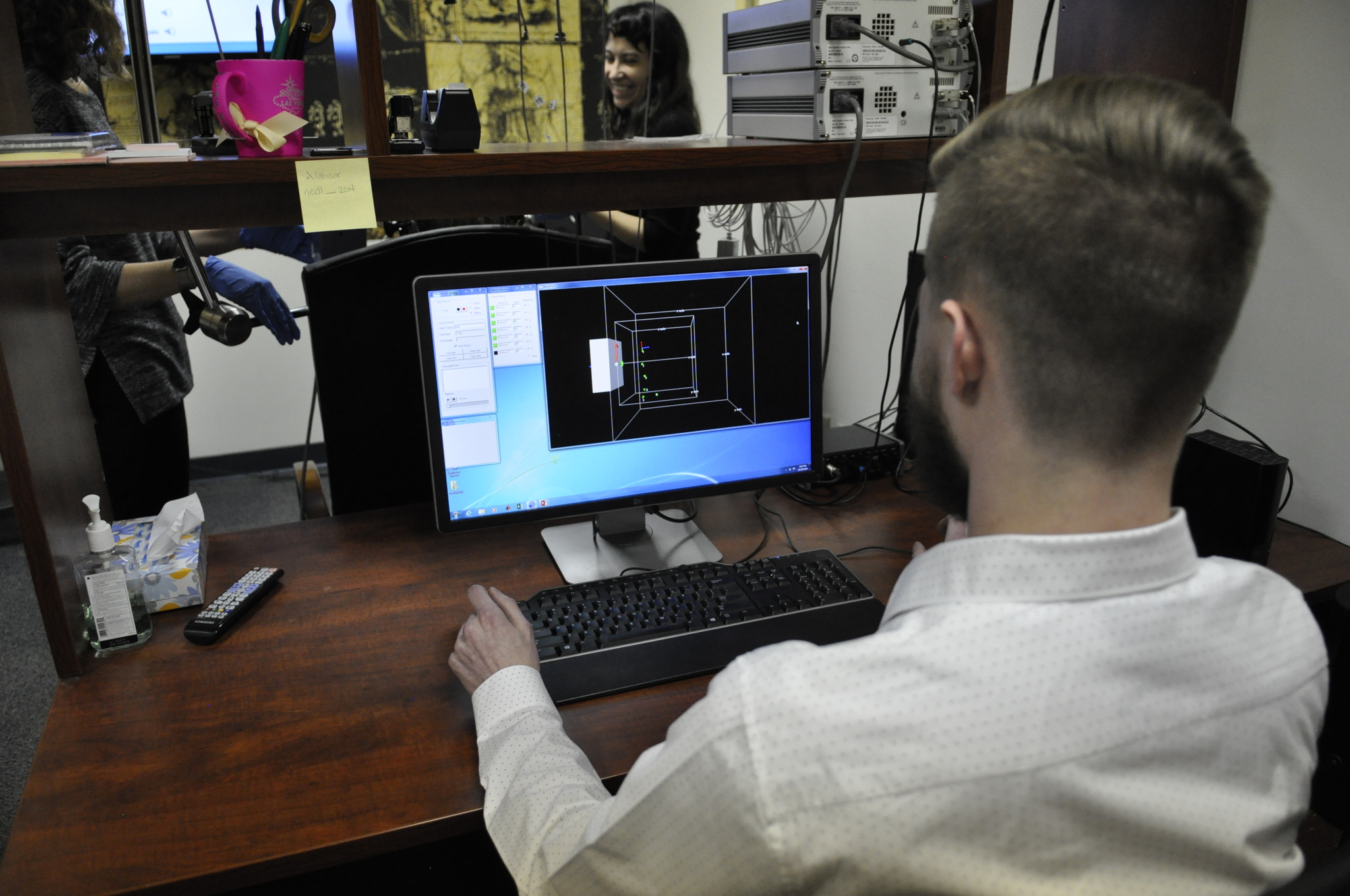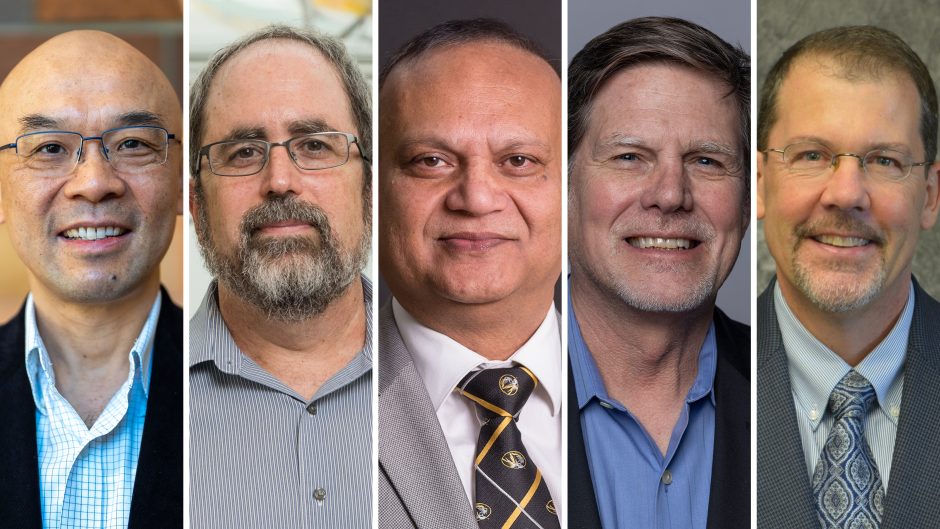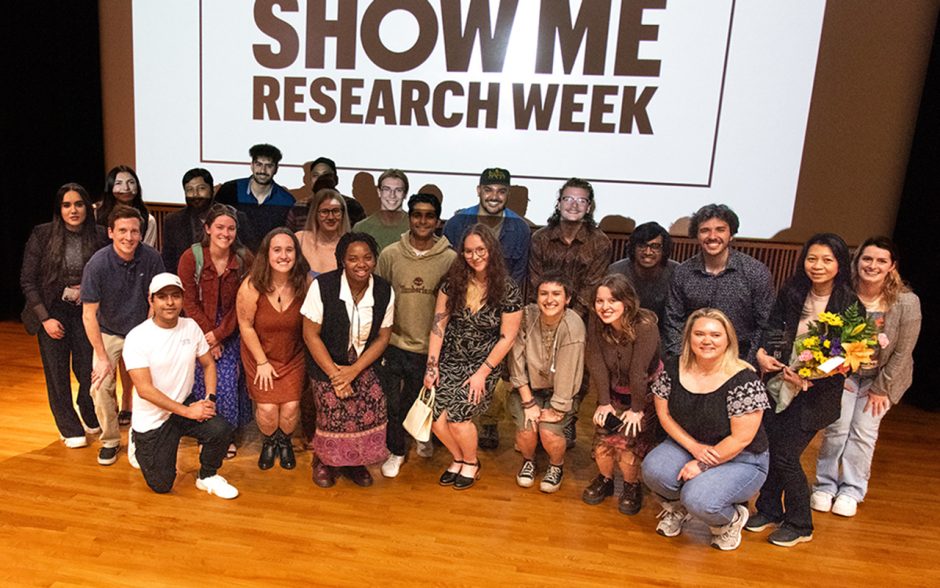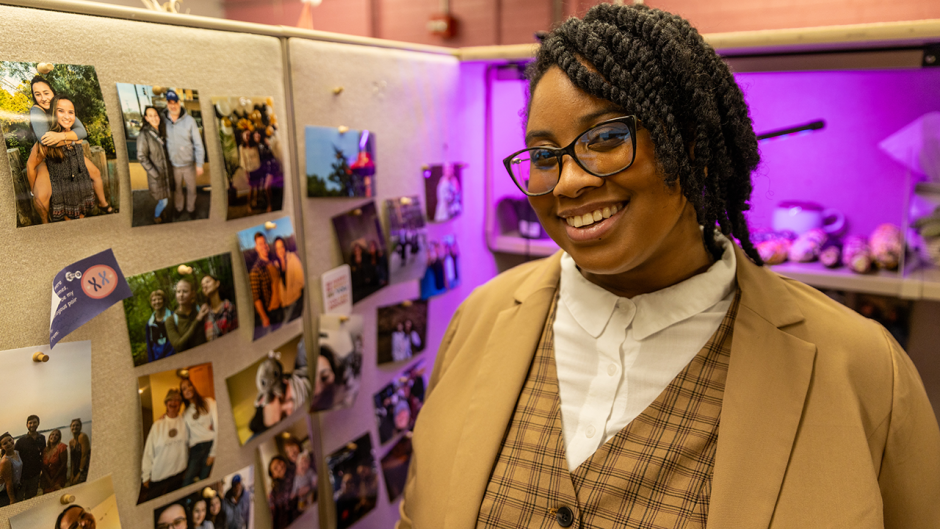Nov. 29, 2018
Contact: Brian Consiglio
Have you ever tried to say a tongue-twister as fast as you can? At Mizzou, these linguistic games are more than just fun; they are being used to diagnose disease.
Mili Kuruvilla-Dugdale, assistant professor of speech, language and hearing sciences, and her team received a grant in 2017 from the MU Coulter Translational Program to research tongue dysfunction detection. Now, Kuruvilla-Dugdale is mentoring 18 speech, language and hearing science students this semester who are working on a project that is funded by the National Institutes of Health.
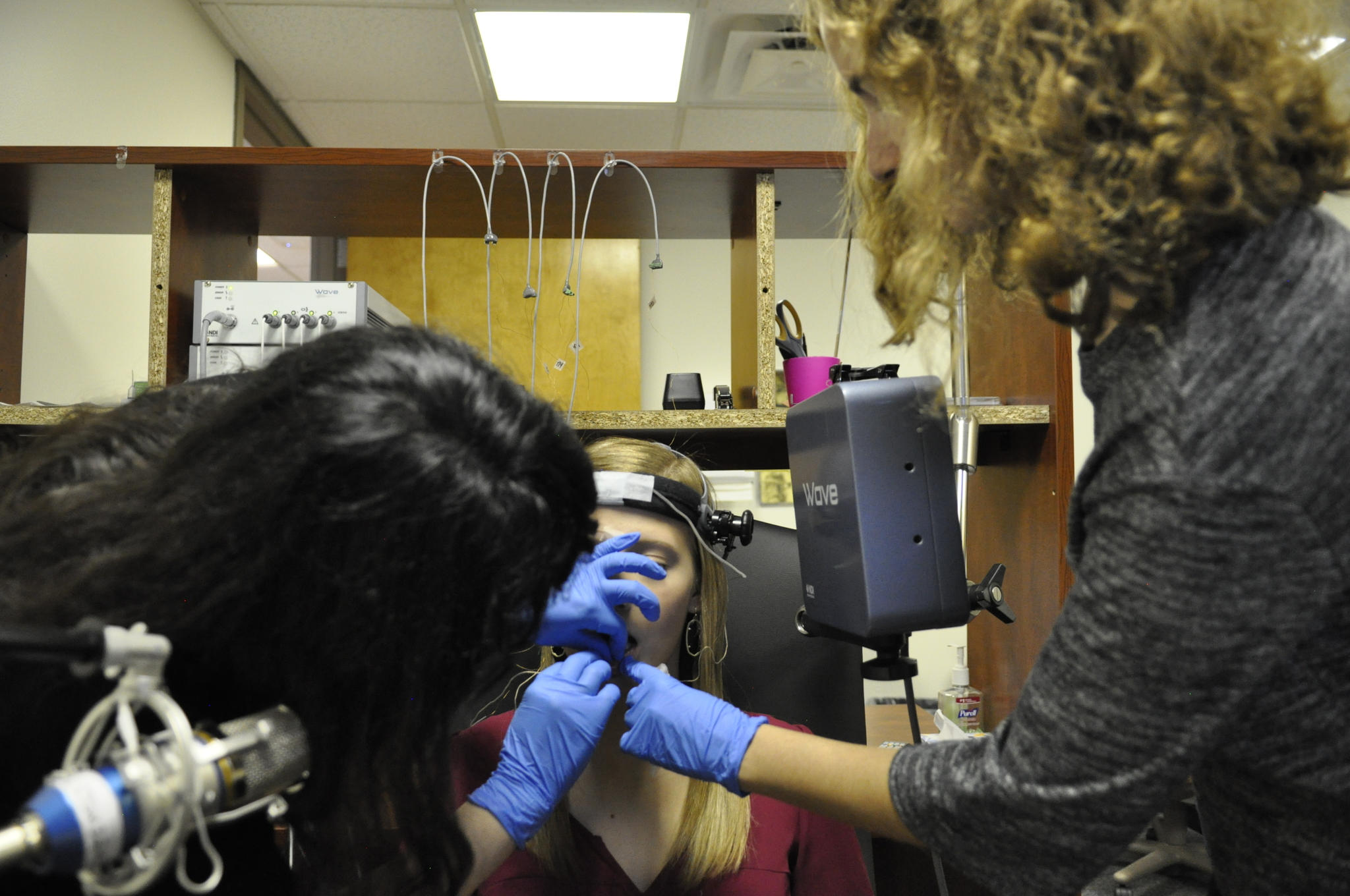
In Dr. Kuruvilla-Dugdale's lab, students are getting hands on experience in helping diagnose diseases.
“We have been looking at speech production in individuals with ALS and Parkinson’s disease,” said Megan Kane, a senior from St. Louis. “It currently takes 12-18 months for a definite diagnosis, but by asking patients to say complex words or sentences, we can detect breakdowns in speech earlier, which will lead to faster diagnoses.”
Kane’s lab partner is Magdalena Schneider, a senior from Chicago.
“Some of the words we ask the patients to say are ‘ventriloquist’ and ‘preposterous,’ as these are words that someone with a neurodegenerative disease would have difficulty pronouncing,” Schneider said. “The earlier we can diagnose an individual, the more time they have to look at treatment options or practice speech exercises that will help them in the long run.”
Kane and Schneider started working in Kuruvilla-Dugdale’s lab after taking her anatomy of speech mechanisms class their junior year. They both hope to pursue a master’s degree in speech pathology after graduation in May.
“Dr. Kuruvilla-Dugdale is able to explain very complicated information in a way that is easy to understand,” Kane said. “Not only is she an influential person here at Mizzou, but she has colleagues and connections at other universities. Being able to learn from her has been very beneficial.”
Kane and Schneider have been working in the lab for more than a year and are starting to see the fruits of their labor. Earlier this month, they presented their research findings at MU’s 2018 Health Sciences Research Day, an event organized by the School of Medicine, Sinclair School of Nursing and School of Health Professions. In April, students will have the opportunity to present at the Missouri Speech and Hearing Convention in Lake of the Ozarks, and at the MU Undergraduate Research and Creative Achievements Forum.
“Working on projects as undergraduates helps these students become critical consumers of research,” Kuruvilla-Dugdale said. “Through working with faculty members outside of the classroom, we can develop impactful relationships and provide life-long mentorship."

